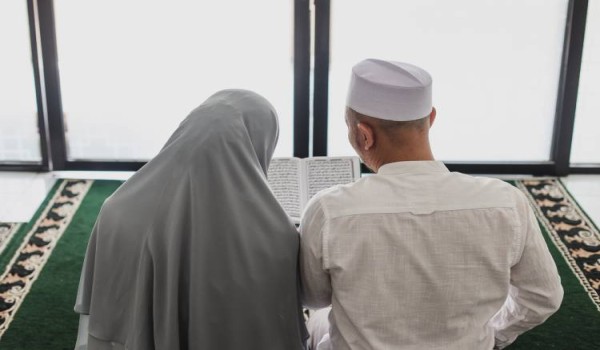Table of Content
- Shariah and Islam on Marriage
- Who can marry in Islam?
- The Role of Consent in Islamic Marriages
- The Importance of Compatibility
- Islamic Wedding: Love and Tradition
- Overcoming Cultural Barriers
- Conclusion: Balancing Love and Faith
Shariah and Islam on Marriage
Before joining the debate over love marriage in Islam, it is essential to draw a backdrop of marriage in Islam. Abrahamic religion Islam supports marriage as a way of safeguarding one's religion, of starting a family, and as a demonstration of love between muslim husband and wife. Arranged marriages in Islam are based on common responsibility, partnership, and peaceful coexistence.
Who can marry in Islam?
A love marriage with the consent of two individuals is considered a violation of the culture against arranged marriage. This has led to a common question: "Is marriage with the consent of two people permitted in Islam?" The answer is yes, but love marriages are permissible in Islam based on some preconditioned rules.
Islam prohibits contract marriage without parental consent, but if love marriages are to be contracted, they should be done in accordance with Shariah Islamic marriage rules. In Islam, love marriage is acceptable as long as the couple has respect for one another's decency, they do not engage in extramarital relations, and they marry for religion's sake.
The Role of Consent in Islamic Marriages
Every Islamic marriage has certain indispensable features, of which consent is the most basic. For a Muslim bride and a Muslim groom, their consent is mandatory and must be unique and voluntary. It is required for both arranged marriages and love marriages. In Islam, forced marriages are not allowed at all.
In cases of love marriages, both individuals must obtain the consent of their families, particularly when it comes to ensuring that the marriage will have the support of their community. Although family approval is highly encouraged, it is not obligatory if the marriage meets all Islamic requirements.
Also Read - The Foundation of Love and Mercy in Islamic Marriage
The Importance of Compatibility
In a number of cultures, Muslims prefer arranged marriages, and one of the reasons is compatibility. Family involvement also guarantees compatibility on issues of faith as well as social relations since both female and male Muslims get to bond before marriage. This compatibility is useful for marriage since it reduces the possibility of having conflicts in the future.
In a love marriage, the two individuals have to make sure that they possess these basics as the framework of the marriage. As we all know, love plays a role in marriage, but it is not the sole ingredient that will define lasting marriage. Shared goals, religious understanding, and mutual respect are essential to a successful marriage in Islam.
Islamic Wedding: Love and Tradition
Love marriages in Islam often combine the elements of affection with traditional customs. An Islamic wedding for a love marriage follows the same rules and rituals as an arranged marriage. The marriage contract, or Nikah, must be signed in the presence of witnesses, and a Mehr (dowry) is given by the groom to the bride.
The important parts of the wedding ceremony consist of the readings from the Quran, prayers, and the couple's families. Whether it is a love marriage or arranged marriage, the central idea of an Islamic wedding doesn't lie in the worldly aspects or the physical attraction that is evident between two people but is purely religiously oriented and based on the legal contract necessary between a man and a woman as allowed in the Sharia law.
Overcoming Cultural Barriers
In many Muslim cultures, love marriages are sometimes met with skepticism, particularly from older generations. The preference for arranged marriages often stems from the belief that they offer more stability and respect for tradition. However, the cultural hesitancy surrounding love marriages should not be confused with Islamic law, which permits the practice as long as it is conducted within the boundaries of Islamic principles.
When it comes to the question—Is love marriage permissible in Islam? The questions are more of a cultural nature than of a religious nature. It will, therefore, be helpful for Muslims when deciding on this issue to make a clear difference between culture and religion.
Conclusion: Balancing Love and Faith
In conclusion, is love marriage allowed in Islam? Yes, it is. Love marriages are permitted as long as they adhere to the guidelines of Islamic ethics, which include maintaining dignity, avoiding premarital relationships, and ensuring mutual consent. While cultural practices may sometimes place a stronger emphasis on arranged marriages, Islam provides room for individuals to choose their life partners based on love, provided it aligns with their religious values.
Whether it's an arranged or love marriage, the principles of compatibility, respect, and shared faith remain central to a successful Islamic marriage. The support of family and community plays a significant role, and resources like Muslim marriage bureau can help individuals navigate the process while staying true to their faith.
For those seeking guidance in finding a compatible partner, Nikah Namah offers valuable services to facilitate marriages that align with Islamic teachings. By focusing on faith, family, and compatibility, Nikah Namah ensures that both Muslim brides and Muslim grooms can enter into marriages that are spiritually and emotionally fulfilling.


💬 Comments